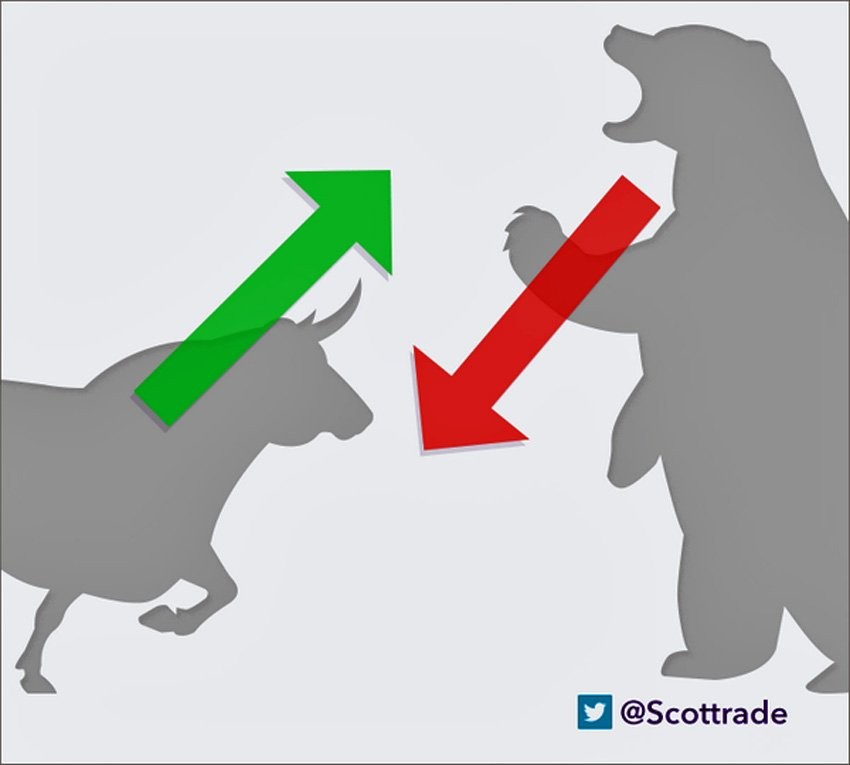Bull and Bear Business
Post on: 16 Март, 2015 No Comment

Bull and Bear Business
- Dec. 19 2006 00:00
When Alexei Rybnikov entered the Russian financial world in 1991, there were really only two choices: You could buy and sell the privatization vouchers that would later be hoarded by the oligarchs, or you could trade GKO government debt certificates at banks. Rybnikov chose the latter and, 15 years later, he doesn’t regret it.
As chief executive of the MICEX stock exchange, he runs one of the world’s top 20 stock exchanges in terms of volume traded during a year when that volume has tripled.
In the intervening time between his education in international economic affairs and the current banner year for Russian trading, Rybnikov has seen the best of times and the worst of times. He has also come to know the Western and Russian ways of doing business, having worked at J.P. Morgan Chase as the head of investment banking operations in Russia.
Rybnikov studied international economic relations at the Moscow State Institute for International Relations and then pursued graduate studies at the U.S.A. and Canada Institute, with an intervening two-year hitch as an officer in the Soviet army.
But the emergence of Moscow as a capitalist business center quickly led him toward finance. Business turned out to be much more interesting than graduate school, he said in an interview.
He spent most of the 1990s at Yevrofinans Bank in Moscow, one of the first banks in Russia to be granted a license for foreign currency operations. My job was to launch the securities business in the bank, and at first I had to do everything myself, he said.
The bank later became the main Russian conduit for non-resident investment into special S accounts for GKOs at government-approved banks.
Then he arrived at Chase Manhattan Bank in Moscow not long before the crisis of 1998. Executives at the bank insisted on downsizing the Moscow office, despite the optimistic views of some local managers.
We did cut staff, of course: There was no other choice, Rybnikov said. We had to let people go that we needed a year and a half later.
But rather than sinking into the gloom of the crisis, as many did, Rybnikov and his company succeeded in taking advantage of opportunities hidden in the country’s debt-ridden businesses.
We didn’t have time for regrets, because we were too busy after the crisis restructuring debts, selling sophisticated new products to our clients and building new relationships, Rybnikov said.
You had to apply your brain to make money for the bank when we had very small country limits. The deals turned out to be very profitable.
Chase Manhattan acquired J.P. Morgan in 2000, and Rybnikov became head of investment banking at the merged institution.
Vladimir Filonov / MT
Rybnikov says Moscow is the most interesting place to be.

In the fall of 2002, Rybnikov was lured by the Central Bank to take part in an ambitious new project — Russian securities market infrastructure.
If I had stayed longer with the bank [J.P. Morgan Chase], I would probably have had to move to another region, since by that time I had spent five years in one place, which was quite a long time for a global institution, he said.
I didn’t want to leave Moscow, because I thought Moscow was — and is — the most interesting place to be, said Rybnikov, who was born in the capital in September 1965.
For Western financial professionals in Russia, he has three pieces of advice: learn the language, listen to others, and get to know Russian culture and its ways of doing business.
Sometimes you cannot change it — just accept it as it is, Rybnikov said. Sometimes it’s not as bad as it might seem in the beginning.
Of course, Russian bankers and financiers are moving rapidly toward Western practices, and he points to MICEX as an example of modern electronic trading.
We are a fully electronic exchange, he said. We pay a lot of attention to the technical aspect. Not to mention protocol: Rybnikov’s exchange dutifully halted trading in May when the emerging markets correction sent stock prices plummeting.
We are required by the securities market regulator to stop trading for a certain period when prices rise or fall beyond a certain threshold, he said.
He and his team have also studied a series of glitches that has plagued the Tokyo Stock Exchange over the past few years.
Of course, not all aspects of Rybnikov’s professional life are as serious as the market regulators might think. The most noticeable objets d’art in his office on Bolshoi Kislovsky Pereulok are two, meter-high stuffed animals — a bull and a bear, the symbols of rising and falling stock markets.
I was given a teddy bear by one of the brokers who said, ‘Sorry I got a bear — they didn’t have a bull in stock.’ Later he received a toy bull from his colleagues as a birthday present.
And the MICEX appreciates not only stuffed animals, he said. At the Moscow Zoo, the exchange sponsors a Russian brown bear and a musk-ox, the closest thing to a bull they could find.














